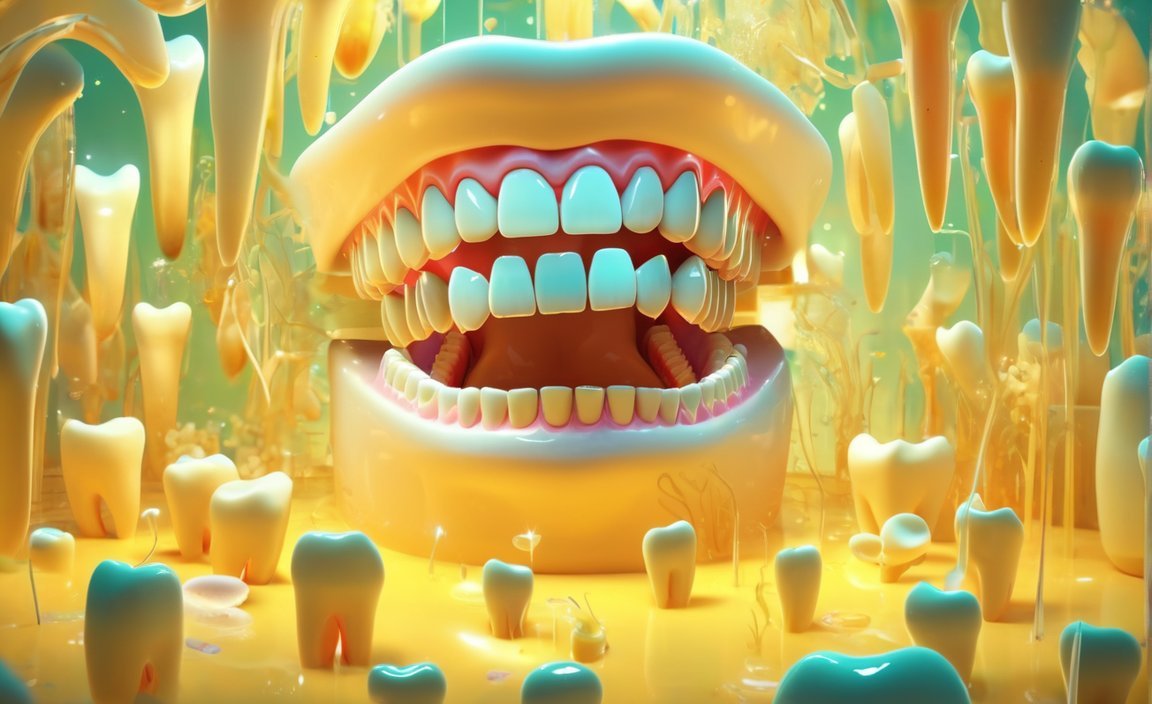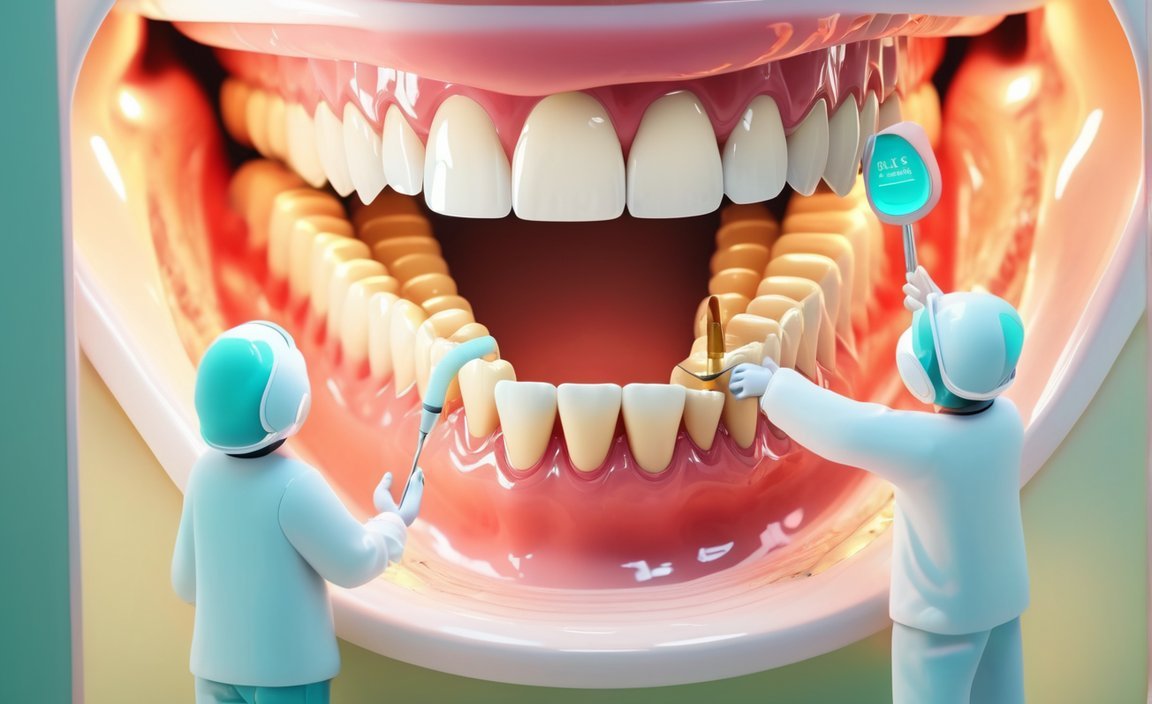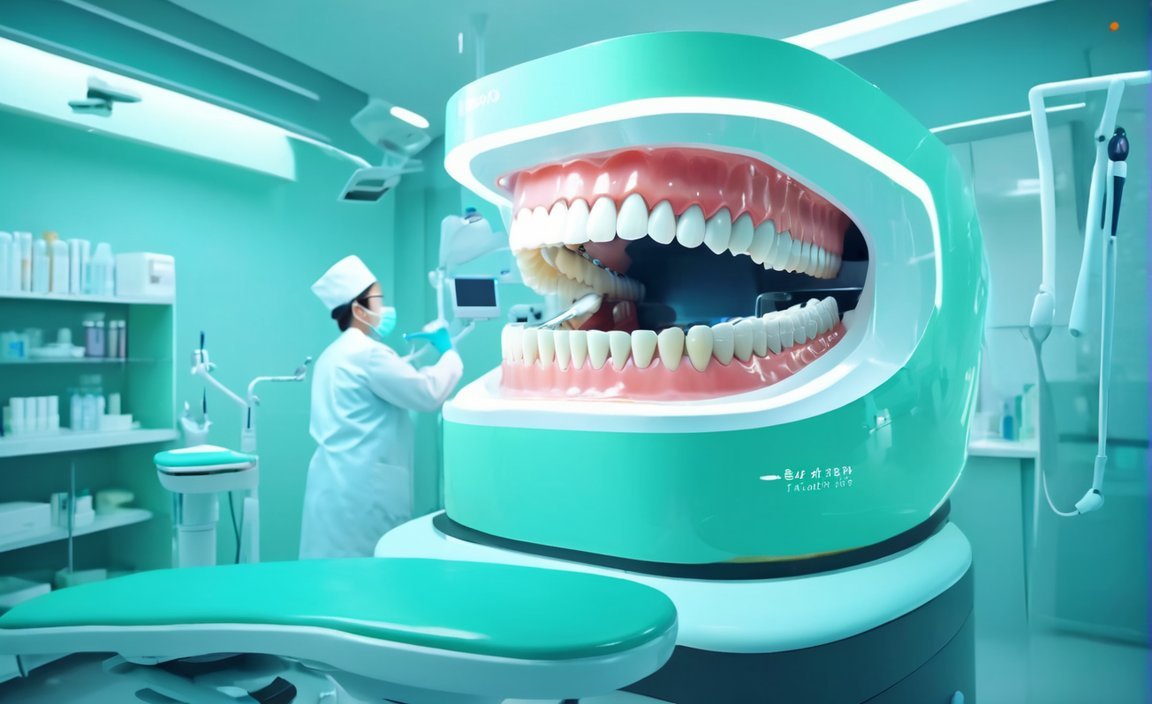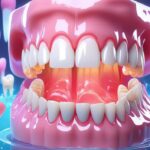Get ready to dive into the fascinating world of dentistry as we uncover 10 things you didn’t know about dentists. From their incredible attention to detail to their vital role in our oral health, dentists have a wealth of knowledge and skills that often go unnoticed. In this article, we’ll explore intriguing facts about these dental experts that will leave you with a newfound appreciation for their profession. So, buckle up and prepare to be amazed by the remarkable work dentists do as we embark on this enlightening journey.
Key Takeaways:
- The first dentist was an Egyptian, showcasing the long history of dentistry.
- Dentistry is a high-paying occupation, offering financial stability to its practitioners.
- The first toothbrush ever invented was made of hog bristles, highlighting the evolution of dental hygiene tools.
- Flossing could improve life expectancy, emphasizing the importance of this daily dental care routine.
- Dentists are respected professionals, recognized for their expertise and contribution to oral health.
- A dentist invented the electric chair, revealing a surprising connection to the criminal justice system.
- Millions of school hours are lost due to unexpected dental care, underscoring the impact of dental problems on education.
- Sweden has the highest number of dentists, indicating the country’s emphasis on dental healthcare.
- The early dentists were blacksmiths and barbers, showcasing the diverse backgrounds of dental practitioners.
- The wires in dental braces were developed by NASA, offering a unique connection between space exploration and orthodontics.
Sources:
- New Interesting Facts. “115 Interesting Facts about Dentists.” Website
- Safariandmd.com. “Tooth Be Told: 10 Interesting Facts About Dentistry.” Website
10 Interesting Facts About Dentists

Did you know that the first dentist was an Egyptian? Dating back to around 2600 BCE, an Egyptian named Hesire was recognized as the world’s first dental practitioner. This historical fact highlights the long and fascinating history of dentistry and the essential role it plays in our lives today. [1]
Dentistry is not only beneficial for our oral health but also financially rewarding. Being a dentist is a high-paying occupation, with dentists often ranking among the highest-earning professionals. This fact showcases the value society places on dental expertise and the significant impact dentists have on both personal well-being and the economy. [2]
Have you ever wondered what the first toothbrush was made of? It’s quite surprising! The earliest toothbrush ever invented was made of hog bristles attached to a bamboo handle. This invention paved the way for the toothbrushes we use today, which have evolved significantly to improve oral hygiene. So next time you brush your teeth, think about the humble beginnings of this essential dental tool. [1]
Here’s a compelling reason to floss regularly: it could potentially improve your life expectancy. Poor oral hygiene can lead to gum disease, which has been linked to various health conditions, including heart disease and stroke. By incorporating flossing into your daily routine, you can maintain healthy gums and potentially enjoy a longer, healthier life. It’s incredible to think that something as simple as flossing can have such far-reaching benefits. [2]
Dentists are not only healthcare professionals but also highly respected members of society. Their expertise and dedication to promoting oral health ensure that people of all ages can maintain healthy smiles. Dentists possess a wealth of knowledge and skills that go beyond treating toothaches and cavities. They play a crucial role in preventing dental issues, detecting early signs of oral diseases, and improving overall well-being. So, next time you visit your dentist, remember to appreciate the valuable work they do.
Did you know that a dentist played a role in inventing the electric chair? Yes, it’s true! Dr. Alfred Southwick, a dentist from New York, devised the idea of using electricity for executing criminals. Although a controversial fact, it showcases the diverse areas where dental professionals can apply their expertise and make significant contributions. [1]
Unexpected dental care can have a significant impact on school attendance. Each year, millions of school hours are lost due to dental issues that require emergency treatment. This fact emphasizes the importance of regular dental check-ups and preventive care to minimize disruptions in children’s education. A healthy smile can contribute to better academic performance and overall well-being. [2]
If you ever visit Sweden, you’ll be in a country with the highest number of dentists per capita. The Swedish government’s focus on oral health and strong dental education programs have resulted in a high dentist-to-population ratio. This fact highlights the importance of access to dental care in maintaining good oral health for the entire population. [2]
Did you know that in the past, dentistry was practiced by blacksmiths and barbers? Before the establishment of modern dentistry, individuals with expertise in other trades took on dental treatments. It’s remarkable to think about the evolution of dentistry and how it has developed into a specialized profession that requires extensive education and training. [1]
Have you ever wondered who developed the wires used in dental braces? It might surprise you to learn that NASA played a part in developing the wires used in orthodontic braces. NASA’s research on heat-resistant nickel-titanium alloys led to the creation of the revolutionary wires that help align and straighten teeth. This fascinating fact showcases the intersection between space technology and dental advancements. [2]
Overall, dentistry is a captivating field with many hidden facts that highlight the incredible work dentists do. Their contributions to oral health and overall well-being cannot be overstated. Whether it’s tracing back to the profession’s ancient roots, exploring its financial benefits, or delving into surprising inventions, dentistry offers a treasure trove of fascinating facts and stories.
Sources:
- New Interesting Facts
- Safariandmd.com
Check out these 10 fun facts about computer science. From the origins of algorithms to the development of artificial intelligence, there’s so much to discover in the world of computing. Explore more here: 10 fun facts about computer science.
Delve into the fascinating world of electricity with these 10 fun facts. Learn about the science behind lightning, the power of electrical currents, and so much more. Click here to uncover these electrifying facts: 10 fun facts about electricity.
Uncover 10 interesting facts about computers that will amaze you. From the evolution of computer technology to mind-boggling statistics, there’s plenty to learn about these remarkable machines. Dive deeper into the world of computers here: 10 interesting facts about computers.
Discover the heat and power of fire with these 10 intriguing facts. From the chemistry of combustion to the role fire has played throughout history, you won’t believe some of these fiery revelations. Click here to ignite your curiosity: 10 interesting facts about fire.
Dentists Play a Crucial Role in Oral Health Maintenance

When it comes to maintaining your oral health, dentists are the unsung heroes working diligently behind the scenes. They play a crucial role in ensuring the health and wellbeing of your teeth and gums. Here are some fascinating facts that shed light on the invaluable work dentists do:
1. Wide Range of Services
Dentists offer a wide range of dental services aimed at maintaining and improving your oral health. From routine check-ups and cleanings to preventive care and restorative treatments, they provide comprehensive dental care for patients of all ages. Their expertise extends beyond just fixing cavities – they are your primary partners in dental care.
2. Keep Your Oral Health in Check
Preventive care is at the core of a dentist’s practice. By conducting regular examinations, cleanings, screenings, and X-rays, dentists can detect any potential dental issues at an early stage. This proactive approach allows them to address problems before they escalate, saving you from pain, discomfort, and expensive treatments down the line.
3. Diagnose and Treat Dental Issues
Dentists are skilled at diagnosing and treating various dental issues. They can identify conditions such as tooth decay, gum disease, oral infections, and even oral cancer. Once a diagnosis is made, they provide appropriate treatment options tailored to your specific needs, ensuring the best possible outcome for your oral health.
4. Restoring Function and Aesthetics
Damaged or missing teeth can significantly impact your ability to speak, eat, and smile with confidence. Dentists offer restorative treatments, such as dental fillings, crowns, bridges, and dental implants, to restore the function and aesthetics of your teeth. Their expertise in restorative dentistry ensures that you can enjoy a healthy and natural-looking smile.
5. Education and Guidance
Dentists don’t just focus on treating dental issues – they are also passionate about educating patients on proper oral hygiene practices. They provide guidance on brushing and flossing techniques, as well as recommendations for oral care products. By equipping you with the knowledge and tools to maintain good oral hygiene, dentists empower you to take control of your dental health.
6. Collaborating with Specialists
In some cases, dentists may refer patients to specialists for specific dental issues or complex treatments. Specialists such as orthodontists, periodontists, and oral surgeons have advanced training in specific areas of dental care and can provide specialized treatments. Dentists coordinate and collaborate with these specialists to ensure you receive the highest standard of care for your oral health needs.
Key Takeaways:
- Dentists offer a wide range of dental services aimed at ensuring the health of your teeth and gums.
- They provide preventive care to detect and address potential dental issues early on.
- Dentists are skilled at diagnosing and treating various dental conditions.
- They offer restorative treatments to restore the function and aesthetics of damaged or missing teeth.
- Dentists educate patients about proper oral hygiene practices for optimal oral health.
- They collaborate with specialists to provide specialized care when needed.
Sources:
– Alsip Dental Center. “The Role of a General Dentist in Your Oral Health.” November 10, 2023. Link
– Facts.net. “8 Fascinating Facts About Dental Hygienist.” September 28, 2023. Link
Dentists use advanced technology and techniques in their practice
Key Takeaways:
– Dentists are embracing advanced technology to enhance diagnostic accuracy and provide better treatment options for patients.
– 3D printing has revolutionized dental prosthetics, enabling cost-effective solutions and improved patient satisfaction.
– Cybersecurity measures are crucial in protecting patient data as dental practices adopt new technologies.
– Teledentistry has gained popularity, offering remote consultations and increased accessibility to dental care.
Dentistry is a field that continually evolves thanks to advancements in technology and innovative techniques. Dentists are at the forefront of these changes, utilizing cutting-edge tools and methods to provide the best possible care for their patients. In this article, we’ll explore 4 fascinating ways dentists are using advanced technology and techniques in their practice.
1. AI Tools for Tooth Decay Diagnosis
Dentists are harnessing the power of artificial intelligence (AI) to improve their diagnostic accuracy. AI algorithms have been developed and trained using vast amounts of data, allowing them to diagnose tooth decay from dental radiographs with remarkable precision. In fact, studies have shown that AI algorithms can be more consistent than human dentists in identifying tooth decay[^1^]. By leveraging AI tools, dentists can provide more accurate diagnoses and offer better treatment options to their patients.
2. Cost-Effective 3D Printing
The advent of affordable and high-speed 3D printers has revolutionized dental practices. Dentists can now utilize these printers to create dental crowns, aligners, occlusal devices, and other dental prosthetics. This not only reduces expenses but also enhances patient satisfaction by providing customized solutions in a timely manner. The cost-effectiveness of 3D printing has allowed dentists to improve their services while minimizing material costs and passing the benefits onto their patients[^2^].
3. Security Considerations
While advanced dental technologies bring numerous benefits, they also raise concerns about data security. Dental practices must prioritize the confidentiality and integrity of patient data. Implementing robust cybersecurity measures and adhering to best practices are essential in safeguarding patient information from potential cyber threats. By taking proactive steps to protect patient data, dentists can ensure the trust and confidence of their patients[^3^].
4. Teledentistry
The COVID-19 pandemic has accelerated the adoption of teledentistry, a practice that allows dentists to provide remote consultations and guidance through virtual platforms. This technology has drastically improved access to dental care, particularly for individuals in remote areas or with limited mobility. Dentists can now monitor patient progress, offer treatment advice, and even provide follow-up care without the need for in-person visits[^4^]. Teledentistry has truly revolutionized the way dental care is delivered and has become an indispensable tool for many practitioners.
By embracing these advanced technologies and techniques, dentists are transforming their practices and enhancing patient care. From AI-powered diagnoses to cost-effective 3D printing, these innovations are making dentistry more precise, efficient, and accessible. However, it is essential for dental professionals to prioritize cybersecurity measures to protect patient information in the digital age.
Sources:
[^1^]: HealthTech Magazine. “4 New Dental Technologies That Are Changing the Field.” Available at:
[^2^]: ADA News. “Digital dentistry: What to know about a few popular technologies.” Available at:
Dentists are also involved in cosmetic dentistry procedures
Cosmetic dentistry is not just about aesthetics; it has the power to transform lives by boosting confidence and improving self-esteem. A smile makeover can be life-changing. Here are 10 fascinating facts about cosmetic dentists that you may not know:
Ancient roots: Cosmetic dentistry is not a new practice. The first set of dentures dates back to ancient Egypt, making cosmetic dentistry an age-old profession. ^1^
More than just looks: Contrary to common misconceptions, cosmetic dentistry goes beyond aesthetics. It can address functional issues as well, helping patients with problems beyond their appearance. ^2^
Teeth whitening: One of the most common cosmetic dentistry procedures is teeth whitening. This affordable and non-invasive option can greatly improve the appearance of a smile. ^3^
Alleviating tooth sensitivity: Some cosmetic dentistry procedures can help alleviate tooth sensitivity, providing relief to those who suffer from this issue. ^4^
Celebrities and cosmetic dentistry: Many famous celebrities have turned to cosmetic dentistry to achieve their picture-perfect smiles. Their beautiful smiles are often the result of cosmetic dentistry procedures. ^5^
Female patients: Research shows that females are more likely to seek cosmetic dentistry treatments compared to males. ^6^
Preventing future dental issues: Addressing dental problems early on through cosmetic dentistry can help prevent more severe issues in the future. By taking proactive steps, cosmetic dentists can save patients from potential oral health problems down the line. ^7^
Specialization in appearance: While general dentists focus on overall oral health, cosmetic dentists specialize in enhancing the appearance of teeth and gums. They have specific training and expertise in cosmetic procedures. ^8^
Improving self-confidence: Consulting a cosmetic dentist can help address your concerns and improve the condition of your teeth and gums. By enhancing your smile, cosmetic dentistry can boost self-confidence and improve overall well-being. ^9^
Life-changing results: The transformative power of cosmetic dentistry should not be underestimated. By correcting dental imperfections and enhancing smiles, cosmetic dentists can truly change lives.
Key Takeaways:
- Cosmetic dentistry is not just about aesthetics; it can address functional issues as well.
- Teeth whitening and alleviating tooth sensitivity are common cosmetic dentistry procedures.
- Many celebrities have had cosmetic dentistry to achieve their picture-perfect smiles.
- Females are more likely to seek cosmetic dentistry treatments compared to males.
- Cosmetic dentistry can help prevent future dental issues.
- Cosmetic dentists specialize in enhancing the appearance of teeth and gums.
- Consulting a cosmetic dentist can improve self-confidence and overall well-being.
- Cosmetic dentistry has the power to transform lives.
Sources:
FAQ
Q1: Who was the first dentist?
A1: The first dentist was an Egyptian, dating back to ancient times.
Q2: Is dentistry a high-paying occupation?
A2: Yes, dentistry is considered a high-paying occupation due to the specialized skills and expertise required in the field.
Q3: What was the first toothbrush made of?
A3: The first toothbrush ever invented was made of hog bristles.
Q4: Can flossing improve life expectancy?
A4: While flossing directly may not impact life expectancy, it is an essential part of maintaining oral hygiene and preventing dental issues that can indirectly affect overall health.
Q5: How are dentists viewed in society?
A5: Dentists are respected professionals who play a crucial role in maintaining oral health and promoting overall well-being.
Q6: What is the connection between dentists and the invention of the electric chair?
A6: Surprisingly, a dentist invented the electric chair as a means of execution.
Q7: How many school hours are lost due to unexpected dental care?
A7: Millions of school hours are lost annually due to unexpected dental care, highlighting the significance of oral health in education.
Q8: Which country has the highest number of dentists?
A8: Sweden has the highest number of dentists per capita in the world.
Q9: What were the occupations of early dentists?
A9: Early dentists were often blacksmiths and barbers before dentistry became recognized as a distinct profession.
Q10: Who developed the wires in dental braces?
A10: The wires in dental braces were actually developed by NASA, showcasing the surprising connection between dentistry and space technology.
- Beyond the Beat: Unveiling Interesting Dance Facts from Around the World - July 26, 2024
- Unlocking Fleet Efficiency: Captivating Facts About FleetFinder - July 26, 2024
- Peel Back the Facts: The Unexpected Wonders of Banana Cleaner - July 26, 2024
















